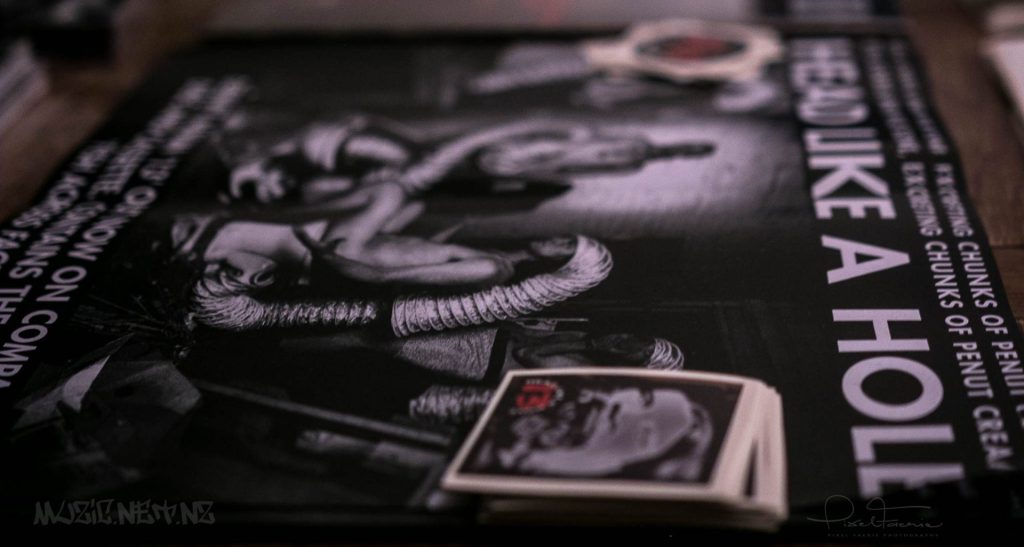Many thanks to Rawiri McKinney from Riff Raff Promotions for allowing us the use of this article.
You’ve honed your skills, and you’re at the point where you want to start gigging with a band. Joining a band is the easiest way to hit the ground running with the opportunity to perform in front of a ready-made fanbase. Yet, it may be difficult to find a group of like-minded individuals playing the music you enjoy. So does it make sense to try to join an existing band, or should you just form a band of your own?
Let’s take a look at the pros and cons of each to help you decide.
Joining a band: the pros
Joining a band has its benefits. When you join a band, you may get to work with musicians you admire. You could connect with seasoned professionals that inspire you to become better at your craft. Not to mention that joining an established band increases the chances that you’ll be gigging sooner and regularly and perfecting your stage performance skills. They’re more likely to have developed long-term relationships with booking agents and venue owners that enable them to land better gigs.

Joining a band: the cons
Joining a band, however, means you cannot pick your bandmates and you’ll have limited creative control. You’re walking into a situation where the band members have a history and may have formed a tight clique. Your task is to learn how to fit in. You could wind up with really cool bandmates that begin to feel like family, but if they have polarizing personalities and a myriad of personal issues instead, you must deal with it or quit. As a new member, it’s unlikely that you’ll have significant input in the song selection, rehearsal process, or rehearsal and performance schedule. If you decide the band is not a good fit, though, you can always resign and search for another one.
Forming a band: the pros
If you want more creative control and assurance that you’ll be playing music you enjoy in venues you prefer, forming a band may be the best way to go. Recruiting your own members allows you to select players with the skill set you desire and individuals you believe you’ll have chemistry with. As the band’s founder, you control the creative direction. You can dictate the size of the band, song selection, image, target venues, and rehearsal and performance schedule.
Forming a band: the cons

As the founding member, you’ll have to manage the responsibilities of the band until you delegate them to others. This means you may have to shoulder the initial start-up costs and function as the band’s manager, booking agent, and promoter. This includes finding and hiring talent as needed, securing gigs, promoting performances, and managing the personalities in the band. Once you book a gig, you’ll be responsible for ensuring the band fulfills its contractual obligations. You will be considered the bandleader by default and must assign these tasks to others if you do not want the authority. Even in the most toxic situations, you may be slow to replace members or disband because you’ve made such a large personal investment.
Before making your decision, explore the bands in your area, and determine what you want from the experience. Take every opportunity to network with local musicians, schedule a few auditions, observe the dynamics of each band, and then weigh your options. If you cannot find a band you like or feel there’s a void in the local music scene that you’d like to fill, take the reins and form a band of your own.
What to post online to find great band members is up to you but if you want to attract the right players you’ve got to do your part. How you craft your band opening post is the defining factor in the kinds of applications you’ll get.
A clear explanation of what you’re looking for is so important, and it’s easy to forget some of the details you should include to really find the ideal member. Follow this guide to shape or double-check your listing to find the right bandmates.
1. What kind of sound are you going for?
Describe your sound the best you can. If you’re open to directional shifts, mention it. You don’t want to shut out potentially great applicants with strict limits about your style if you’re actually flexible about it.

2. What level of commitment are you expecting?
How many times does your band rehearse each week or month? How regularly do you book (or hope to book) shows? Are you planning on touring? You should consider not only the upfront investments in time, but also the long run. If you’re all in it for the long haul, you should relate to potential members that they should be, too.
3. What skill level is required?
Some bands are open to fledgling musicians, while others are on a level where someone just starting out wouldn’t be able to keep up. Others fall somewhere in the middle where an average skill set is fine. Especially if you’re a group on either extreme, make the general ability you’ll need from a new member clear.
4. Where does the band stand career wise?
Include details about the band’s releases, tours, and anything else that gives insight into your history. Some people only want to join a brand-new band, while others are happy to fall in line with one that’s already established.
5. Where is the band headed?
What are the band’s goals? Recording? Touring? Or are you all going with the flow, just having fun and letting things happen as they may? Define what’s ahead for the band as clearly as you can to be sure you attract applicants who will be enthusiastically on board.
Ready to find your next musical partner? Start searching now, or log in to post your own band opening!
Here are things you need in a bandmate and how to audition for those key attributes, using Mary, the imaginary drummer, as our test case.
1. Show up on time

It might seem obvious. It might seem stupid. But there are millions of wonderful musicians out there who are always late, oversleep, and miss rehearsal, or can’t seem to keep a vehicle on the road to get to shows. If Mary can’t make it on time to the audition, has car problems, or has trouble coming up with gas money to get to you, expect that to be an everyday thing… even if she swears that she usually has her act together. If she’s super talented, that makes it even worse, because you’re afraid you’ll never find someone as good if you let her go. But believe me, nothing is more aggravating in a band than having to wonder where the drummer is.
2. Match your working style
Think about the way your band adds material. Do you play covers or originals? Do you do a lot of improvising? Do you write as a group, or does one songwriter bring a completed song to rehearsal, where the other players add their parts? Some bands practice songs on their own at home, and then bring them together having already learned the tunes. Others carve improv sessions into new songs in a collaborative process. Whatever your process is, put your applicant through it. Approximate your regular working style as much as possible to make sure that Mary can handle it. You’ll find out pretty quickly if she’s bullheaded about making changes or can’t take criticism.
3. Able to handle all of your material
We’ve all heard players who sound amazing playing their favourite style, but fall apart or get frustrated when faced with a different groove. Mary might be great at playing a straight funk, but if your band has ballads, something super fast, or a song in an odd time signature, she’d better hear that stuff too, so you know she can play it. The best players get bored playing similar material all the time, and actually excel when given some diversity to work with.
4. Strong stage presence
Maybe you’re in a goth band that stands motionless during your shows, surrounded by skulls and candles. But for most bands, showmanship is important. You don’t need to be on stage to have stage presence; it should be obvious in rehearsal. Players with good stage presence need to be comfortable enough with their instruments that they can divide their attention. If Mary shows some emotion while playing, makes eye contact to look for cues or changes, and acknowledges something cool that another player just did, she’s probably going to be a good performer. If she keeps her head down, trying not to screw up, then that’s probably what you should expect during a live show. Maybe that’s okay for your band, but you should know before you hire her.
5. The right attitude (whatever that means for your band)

There are eager young players who may not have the chops to keep up with you. Then there are crusty veterans who only seem to care about getting paid. Somewhere in the middle of that continuum is the player you want. If Mary can play well and have fun, that’s a great sign. But you should be thinking about what other personal traits you’re looking for. Does your band have a political, religious, or social outlook? Does Mary need to be an anarchist, an environmentalist, or a nihilist to fit in with the rest of you? These things should probably be made clear from the outset. Then there’s the level of sarcasm she’ll have to deal with. If your bandmates rip each other constantly and throw crude jokes back and forth, you’d better not hold back during the audition. You need to know if she’ll give it right back, ignore you, or get upset.
6. Thinks your band is great
Just like a job applicant, Mary’s auditioning you, too. This means that your band should be ready to play well for her. The rest of you should be there before Mary arrives, warmed up, tuned up, and prepared to rock.
7. Capable of performing sober
There’s an uncomfortably close relationship between music and alcohol, and countless bands have been brought down (or made much worse) by drug abuse. People who abuse tend to normalize this behaviour. If Mary shows up to the audition and asks for alcohol – or brings her own, and starts drinking during the audition – that’s a major red flag. This holds true even if you tend to have a beer or two yourselves during rehearsals.
8. The final verdict
After you’ve auditioned Mary, you may want to sign her up on the spot. Or you may have decided she’s not right for you. Or you may need to have a band meeting and decide between her and Bill the Other Drummer. Either way, somebody needs to call her and give the thumbs up or thumbs down. Nobody likes making the thumbs-down call, but it’s disrespectful not to. After all, she took time out of her day, came to your rehearsal space, and put up with your band for a couple of hours. If it’s a “no,” she deserves to hear it from you, be thanked for her time, and not have to sit around wondering if she got the gig. In the end, all towns are small towns, and treating people respectfully and politely can only help your band rise.






